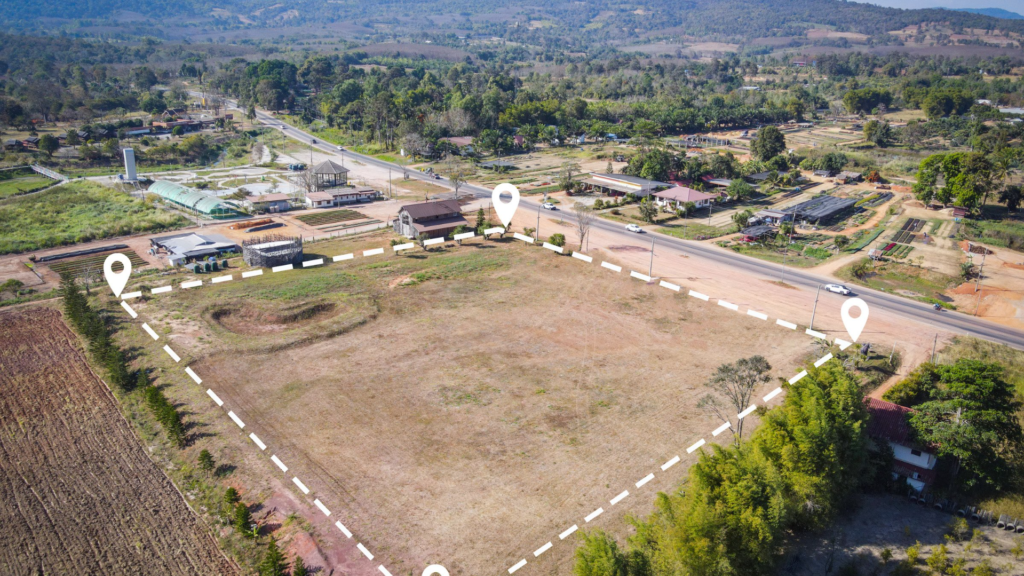Step-by-Step Blueprint in Buying Land To Build A House

Buying Land To Build A House
Buying land to build a house can be a rewarding investment, but it requires careful planning and knowledge. There is, however, a number of key areas of concern that need to be taken into account: The areas of land Number of units Zoning laws Financing options Location In this guide, we will guide you through a step-by-step process of how to go about buying land and building a house to avoid being caught up in some of the nightmares associated with this undertaking.
Determine Your Budget and Financial Plan in Buying Land To Build A House
Therefore, it’s important that you set the budget of the land search that you are going to undertake and most importantly, the budget for construction of your house. The cost of land differs depending on locality, transport and other factors in the process of acquiring a piece of land.
You’ll also have transportation costs for people, equipment, and supplies, as well as the expenses for services such as water/s Earung, electricity, and sewage installments and site preparation, including clearing off the land.
Types of Loans for Buying Land
Financing land purchases is often different from obtaining a mortgage for a home. Some common loan types include:
- Land loans: For buying undeveloped land.
- Construction loans: For financing both land purchase and home construction.
- Seller financing: A less common option where the landowner finances the deal

Location and Zoning Considerations in Buying Land To Build A House
One of the first aspects that need to be determined is the suitability of the land you are interested in. Restrictions that govern the kind of development permitted in certain regions are called the zoning ordinances. Contact the planning department to see limitations and laws regarding properties in your area.
Access to Utilities and Infrastructure
Among these infrastructures, water and electricity power and sewage and internet services are some of the common requirements for houses or residential buildings. These services may not be available in rural areas thus, you may require fixing wells, septic systems or off grid energy solutions. It is important to check if these services are available before buying them.
Conduct a Survey When Buying Land To Build A House
A professional land survey will confirm the boundaries of your property and identify any potential legal or structural challenges, such as easements, wetlands, or encroachments. This is essential to avoid future disputes or complications when building.
Soil and Environmental Testing
Soil quality is a significant factor in determining whether land is suitable for building. A geotechnical engineer can conduct tests to check for contamination, assess load-bearing capacity, and identify natural hazards like erosion or flooding.

Legal Due Diligence in Buying Land To Build A House
Ensure that the land is free from legal encumbrances such as liens, easements, or restrictive covenants that could limit your building plans. It’s recommended to work with a real estate lawyer to review the title and all legal documents.
Permits and Building Approvals
Before construction can begin, you’ll need to secure the necessary permits from local authorities. These may include building permits, zoning permits, and environmental approvals. Failure to obtain proper permits can result in fines or forced demolition.
Hiring the Right Professionals When Buying Land To Build A House
Building a home involves a team of professionals, including architects, builders, and contractors. Start by hiring a reputable architect to design your home and a general contractor to oversee the construction process. It’s also wise to get multiple bids before committing to a contractor.
Working with a Real Estate Agent
A real estate agent experienced in land purchases can be invaluable in helping you find suitable plots, negotiate with sellers, and navigate local regulations. They can also provide insights into market trends and potential challenges.
Make an Offer and Close the Deal
Once you’ve found the perfect plot, your real estate agent can help you make a fair offer. Be sure to include contingencies for financing, inspections, and land surveys. After the seller accepts your offer, you’ll proceed to closing, where you finalize the purchase.
Preparing the Land for Construction
After purchasing the land, you’ll need to prepare it for building. This includes clearing trees and brush, grading the land, and setting up temporary utilities. A licensed builder can assist with site preparation.
FAQs about Buying Land To Build A House
- What should I check before buying land?
Always verify zoning laws, access to utilities, soil quality, and ensure the land is free from legal issues.
- How do I finance a land purchase?
Land loans, construction loans, and sometimes seller financing are common ways to finance land purchases.
- Do I need a land survey?
Yes, a land survey is crucial to confirm boundaries and identify any issues like easements or encroachments.
- What is the difference between raw and improved land?
Raw land is undeveloped with no utilities, while improved land is prepped for residential development and often has utilities.
- Can I build on any plot of land?
No, always check local zoning laws and ensure the land is suitable for residential construction.
- How much does it cost to prepare land for building?
Costs can range from $1,000 to $5,000 or more, depending on land clearing, utility hookups, and grading.
Final Thoughts
Buying land to build a house is an exciting yet complex process that requires careful planning and professional assistance. From determining your budget to navigating legalities, following these steps will help ensure a smooth transition from land purchase to the construction of your dream home.
Keep Learning
>> Your Step-by-Step Guide to Rent To Own Land
>> Buying Land for Massive Profits: The 2024 Investor’s Blueprint



